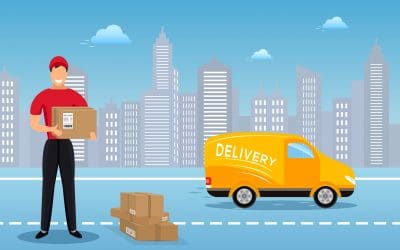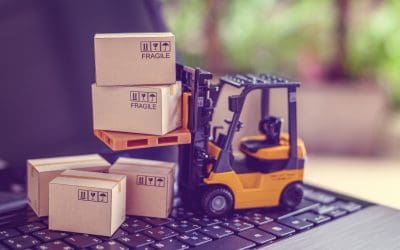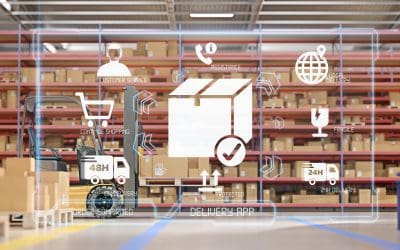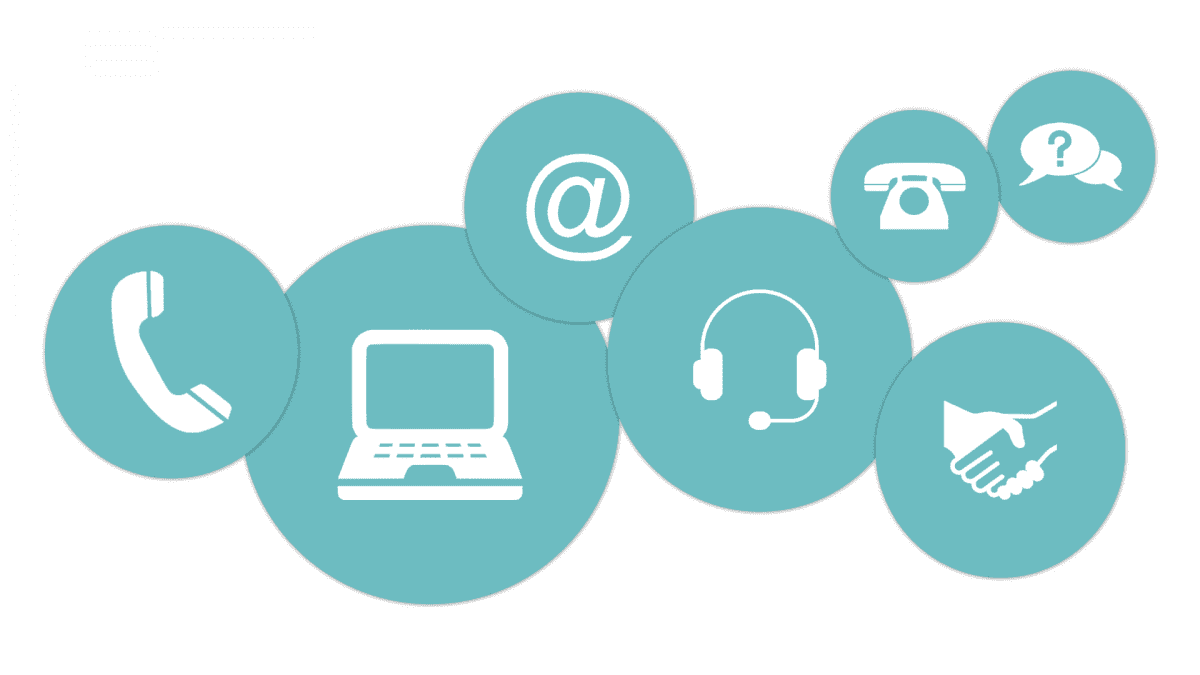
Imagine a world where every product arrives exactly when needed, where supply chains are so finely tuned that delays and disruptions are virtually nonexistent. It’s a vision that can become reality, even in today’s fast-paced business world, through effective B2B logistics.
For businesses navigating complex supply chains, the stakes are high—efficiency, cost control, and customer satisfaction are all on the line. Every missed deadline and inefficiency can ripple through the supply chain, causing significant disruptions and significant financial losses. Understanding and addressing these challenges is the key to maintaining a competitive edge. For logistics managers striving for excellence, mastering the intricacies of B2B logistics is vital. It’s about transforming potential obstacles into opportunities for improvement and growth.
Understanding B2B Logistics
B2B logistics, or business-to-business logistics, involves transporting and managing goods and services between businesses. Unlike B2C (business-to-consumer) logistics, which focuses on delivering products to individual consumers, B2B logistics deals with larger volumes and more complex transactions. It plays a crucial role in the supply chain, ensuring that products move efficiently from suppliers to manufacturers, wholesalers, and retailers.
In the context of supply chain management, B2B logistics is pivotal. It guarantees that materials and products are available where and when needed, facilitating smooth production processes and timely delivery to end customers. Efficient B2B logistics can lead to significant cost savings, improved customer satisfaction, and enhanced operational efficiency. By optimizing logistics operations, businesses can reduce lead times, minimize inventory costs, and respond flexibly to market demands.
B2B logistics requires meticulous coordination and robust infrastructure to handle the high volume and complexity of transactions. This includes advanced warehouse management systems, sophisticated transportation networks, and precise inventory control. Businesses must also navigate a web of regulatory requirements and maintain compliance across various jurisdictions. Effective B2B logistics strategies involve integrating technology to enhance visibility, streamline processes, and ensure real-time communication among all stakeholders. This level of coordination and efficiency is important for maintaining a competitive advantage in today’s global market.

Top B2B Logistics Challenges and Solutions
1. Complex Networks
Challenge: Managing a network that involves multiple suppliers, manufacturers, and distributors can be overwhelming. Each link in the chain needs to be coordinated effectively to prevent bottlenecks and ensure smooth operations. Miscommunication or delays at any point can cause significant disruptions, leading to inefficiencies and increased costs.
Solution: Implement advanced supply chain management software to streamline operations and improve visibility across the network. These tools facilitate real-time tracking, enabling managers to monitor progress and address issues promptly.
- Advanced Technology: Utilizing AI and machine learning enhances predictive analytics, allowing for better demand forecasting and more efficient resource allocation. These technologies can identify patterns and trends in data that human analysts might miss, leading to more accurate inventory management and optimized supply chain operations.
- Real-Time Tracking Systems: Implementing GPS and IoT-enabled devices improves supply chain visibility, reducing the risk of disruptions. Real-time tracking allows logistics managers to monitor the movement of goods, anticipate potential delays, and make proactive adjustments to provide timely deliveries. These systems can provide detailed insights into transit times and performance metrics, enabling continuous improvement of the supply chain.
2. Time Sensitivity
Challenge: B2B transactions often involve time-sensitive deliveries, where delays can lead to significant financial losses and strained customer relationships. The precise timing of deliveries is critical to maintaining production schedules and meeting customer demands.
Solution: Employ route optimization algorithms and reliable third-party logistics (3PL) providers to ensure timely deliveries. Maintaining a buffer stock can also help mitigate the impact of unforeseen delays.
- Route Optimization: Utilizing software that calculates the most efficient routes for deliveries can minimize travel time and reduce the risk of delays. This technology can also help in planning for contingencies such as traffic congestion or weather-related disruptions. Route optimization can also result in cost savings by reducing fuel consumption and improving vehicle utilization.
- Buffer Stock Management: Keeping a small inventory buffer helps manage unexpected delays in the supply chain. This ensures that production lines aren’t halted due to late deliveries, maintaining the flow of operations and customer satisfaction. Buffer stock can also provide a cushion against sudden spikes in demand, ensuring consistent service levels and avoiding stockouts.
3. Cost Management
Challenge: High transportation costs, warehousing expenses, and inefficiencies can inflate overall logistics costs. These rising expenses can erode profit margins and make it difficult for businesses to remain competitive.
Solution: Leverage technology to optimize routes, manage inventory, and automate processes, significantly reducing costs. Partnering with 3PL providers can also offer scalable and cost-effective solutions.
- Technology Integration: Adopting logistics management systems can automate many aspects of the logistics process, from order processing to shipment tracking, reducing the need for manual intervention and lowering operational costs. These dynamic systems can also provide detailed analytics to identify areas of waste and opportunities for cost savings, further enhancing efficiency.
- Economies of Scale: Partnering with 3PL providers allows businesses to leverage the scale and expertise of these providers, leading to cost savings on transportation and warehousing. 3PLs can consolidate shipments to maximize load efficiency and negotiate better rates with carriers due to their larger volume of shipments, passing these savings on to their clients.
4. Regulatory Compliance
Challenge: Navigating the complex web of local and international regulations can be daunting. Non-compliance can result in fines and operational disruptions. Ensuring adherence to diverse regulatory requirements across different regions adds to the complexity.
Solution: Stay informed about regulatory changes and invest in compliance management systems to help businesses adhere to regulations. Collaborate with customs experts or brokers to simplify the compliance process.
- Compliance Management Software: These tools help track changing regulations and ensure that all logistics activities adhere to legal frameworks. This minimizes the risk of fines and operational disruptions due to non-compliance. These systems can also automate the documentation process, providing timely and accurate filings, and reducing the administrative burden on logistics teams.
- Customs Expertise: Working with customs brokers or consultants can simplify the process of navigating international regulations for smooth cross-border transactions that reduce the risk of delays. These experts can provide valuable insights into the latest regulatory updates, help prepare all necessary documentation, and facilitate faster clearance through customs, minimizing delays and keeping the supply chain moving efficiently.
5. Supply Chain Visibility
Challenge: Lack of transparency can lead to inefficiencies and miscommunication among supply chain partners. Without clear visibility, it becomes difficult to track shipments, manage inventory, and coordinate between various stakeholders effectively.
Solution: Implement digital solutions like blockchain and IoT to enhance visibility and traceability across the supply chain. These technologies provide real-time data, enabling proactive decision-making and improving coordination.
- Blockchain Technology: Using blockchain for supply chain management enhances transparency and traceability, providing a secure and immutable record of all transactions. This technology helps quickly identify and address any issues that arise in the supply chain. It also ensures that all parties have access to a single source of truth, reducing disputes and enhancing trust among partners.
- IoT Integration: IoT devices can provide real-time data on the condition and location of goods, helping businesses monitor their inventory and shipments more effectively. This data can be used to optimize supply chain processes and improve overall efficiency. IoT sensors can also monitor environmental conditions, such as temperature and humidity, guaranteeing that sensitive goods are stored and transported under optimal conditions, reducing spoilage, and ensuring quality.
6. Customer Expectations
Challenge: B2B customers now expect the same level of service as B2C consumers, including quick deliveries and real-time tracking. They demand high transparency, reliability, and personalized service, which can make it a real challenge to consistently deliver in complex B2B transactions.
Solution: Invest in customer relationship management (CRM) systems and improve communication channels to help meet customer expectations. Provide personalized services and maintain transparency about delivery statuses.
- CRM Systems: Implementing CRM systems helps businesses manage customer interactions, providing a centralized platform for tracking orders, communications, and feedback. This leads to better customer service and higher satisfaction. CRM systems also allow service customization based on customer preferences and history, enhancing the overall customer experience.
- Enhanced Communication: Maintaining clear and consistent communication with customers ensures that they are kept informed about the status of their orders, reducing uncertainty and building trust. Leveraging multiple communication channels, such as email updates, SMS notifications, and customer portals, can ensure timely and accurate information flow, further improving customer satisfaction and loyalty.
7. Workforce Management
Challenge: Logistics operations rely heavily on a skilled workforce. Labor shortages and high turnover rates can disrupt operations, leading to delays, increased costs, and decreased customer satisfaction. Attracting and retaining talent in a competitive job market is a significant challenge for many logistics companies.
Solution: Offer competitive wages, invest in training programs, and foster a positive work environment to help attract and retain talent. Utilize automated systems to reduce dependency on manual labor, allowing employees to focus on more strategic tasks.
- Training and Development: Regular training ensures that the workforce is proficient in using modern logistics tools and technologies. This improves operational efficiency, reduces errors, and enhances employee satisfaction. Continuous education programs can also keep employees updated on industry trends and best practices, fostering a culture of continuous improvement.
- Employee Retention: Investing in employee development fosters a positive work environment, increasing job satisfaction and reducing turnover rates. Well-trained employees are more likely to stay with the company and contribute to its success. Offering career development opportunities and recognizing employee achievements can also further boost morale and loyalty, creating a more stable and productive workforce.

How Elite EXTRA Can Help
Elite EXTRA is a trusted provider of cutting-edge logistics solutions designed to address the unique challenges of B2B logistics. Our platform offers advanced technology, including real-time tracking, route optimization, and automated dispatching, ensuring efficient and timely deliveries. These robust features help businesses maintain precise control over its logistics operations, reducing delays and enhancing the overall customer experience.
Compliance
When it comes to compliance and security, Elite EXTRA’s solutions ensure that businesses adhere to regulatory requirements, providing peace of mind and reducing the risk of fines. Our systems offer complete visibility across the supply chain, allowing businesses to track shipments in real time and make informed decisions. Such a level of transparency is crucial for identifying potential issues before they become significant problems and maintaining smooth operations.
Customer Satisfaction
Customer satisfaction is a key focus for us. With features like accurate delivery estimates and real-time updates, Elite EXTRA helps businesses meet and exceed customer expectations. These tools ensure that customers are always informed about their shipments, reducing uncertainty and improving trust. Our platform also supports detailed analytics and reporting, enabling businesses to refine their logistics strategies based on real-time data and customer feedback.
Sustainability
We also support sustainability initiatives by promoting eco-friendly practices. Our route optimization features reduce fuel consumption and emissions, helping businesses lower their carbon footprint. This contributes to environmental sustainability and appeals to environmentally conscious customers. By integrating sustainable practices into logistics operations, businesses can enhance their brand reputation and meet growing consumer demands for corporate responsibility.
Partnering with Elite EXTRA means leveraging a robust logistics platform that addresses every aspect of B2B logistics challenges, from cost efficiency and compliance to customer satisfaction and sustainability.
Final Thoughts
Overcoming B2B logistics challenges is essential for maintaining a competitive edge in today’s market. The complex nature of B2B logistics, involving multiple suppliers, manufacturers, and distributors, demands robust and effective solutions. By understanding the key challenges and implementing effective strategies, businesses can enhance their logistics operations, reduce costs, and improve customer satisfaction. Advanced technologies, like real-time tracking and route optimization, are instrumental in achieving these goals.
Elite EXTRA offers the tools and expertise needed to navigate these challenges successfully. Our comprehensive platform allows businesses to streamline operations, ensure compliance with regulatory requirements, and maintain complete visibility across the supply chain. By leveraging Elite EXTRA’s solutions, businesses can address immediate logistics challenges and set the foundation for long-term operational excellence and sustainability.
Discover why Elite EXTRA is a trusted provider in B2B logistics. Contact us today to learn how our solutions can help your business overcome logistics challenges and achieve operational excellence. Let Elite EXTRA be your partner in transforming your logistics operations and driving your business forward.
Sources
https://www.marketwatch.com/ guides/business/what-is-crm
https://www.getac.com/us/blog/future-workplace-trends-logistics







